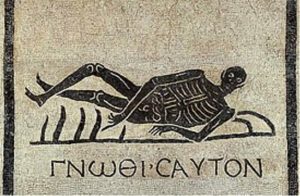Track Thyself? Personal Information Technology and the Ethics of Self-knowledge
Written by Muriel Leuenberger

The ancient Greek injunction “Know Thyself” inscribed at the temple of Delphi represents just one among many instances where we are encouraged to pursue self-knowledge. Socrates argued that “examining myself and others is the greatest good” and according to Kant moral self-cognition is ‘‘the First Command of all Duties to Oneself’’. Moreover, the pursuit of self-knowledge and how it helps us to become wiser, better, and happier is such a common theme in popular culture that you can find numerous lists online of the 10, 15, or 39 best movies and books on self-knowledge.
Read More »Track Thyself? Personal Information Technology and the Ethics of Self-knowledge
